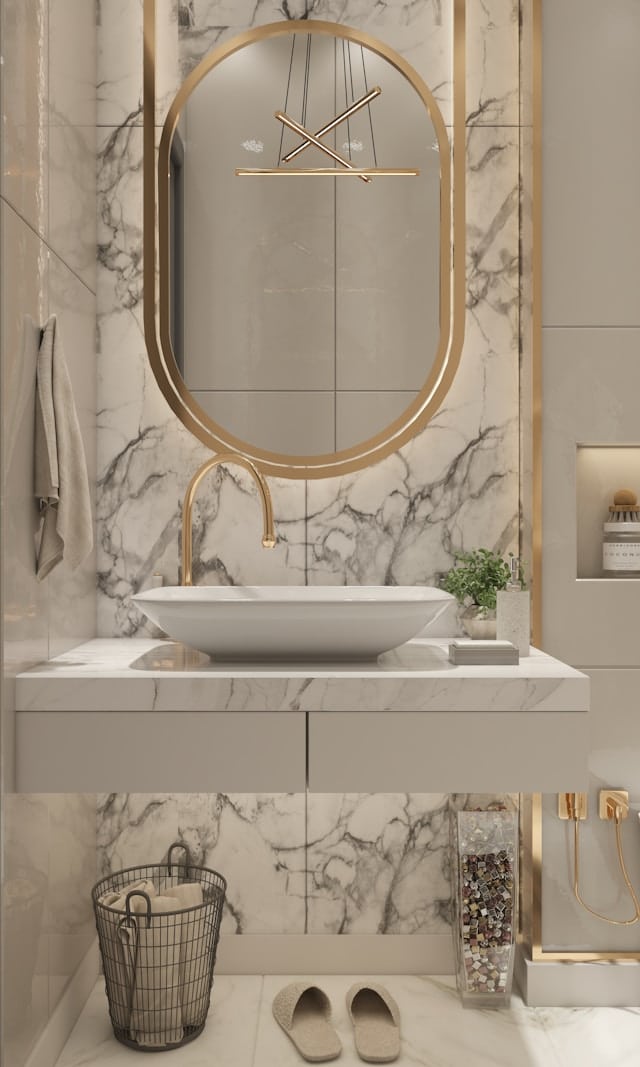How to Create a Dual-Purpose Room that Serves as a Guest Bedroom and a Study?

The challenge of maximizing space in a home has become a common concern for many households. Whether you live in a sprawling mansion or a cozy apartment, every square foot matters. One of the best ways to maximize your living space is to create dual-purpose rooms. In this guide, we will take you through a step-by-step process on how to design a room that can serve as both a guest bedroom and a study. This dual-purpose room offers a practical solution for those who frequently host guests and also need a quiet space to work or learn.
Choosing the Right Furniture
The right furniture plays a pivotal role in transforming a room into a multi-functional space. When choosing furniture for your dual-purpose room, prioritize those pieces that are versatile, compact, and easily movable.
Cela peut vous intéresser : How to Build an Outdoor Yoga Studio That Blends with Natural Surroundings?
A Murphy bed or a sofa bed is an ideal choice for a guest bedroom that doubles as a study. During the day, you can fold up the bed and use the room as an office. When guests arrive, simply pull down the bed or unfold the sofa to create a comfortable sleeping space.
Your desk is another essential piece of furniture. Opt for a compact desk with multiple storage compartments to keep your workspace tidy. If you choose a desk with wheels, you can easily roll it aside when you need to transform the room into a guest bedroom.
A lire en complément : What’s the Most Effective Way to Integrate Sustainable Solar Tiles into a Period Home’s Roof?
Planning the Layout and Design
Planning the layout is crucial in ensuring that your room is functional and comfortable for both your guests and for you when you’re using it as a study. Start by taking precise measurements of the room and sketching a simple floor plan. A balanced layout will allow you to accommodate both the bed and the desk without making the room feel overcrowded.
While designing your dual-purpose room, keep in mind that it should still feel like a welcoming bedroom for guests. Consider incorporating elements that add warmth and comfort such as rugs, cushions, and throw blankets.
Organizing Storage Efficiently
Efficient storage solutions are key to maintaining a clutter-free and functional dual-purpose room. You might need to store bedding for guests, books, office supplies, and personal items in the same space.
Consider using multi-functional furniture with built-in storage, like a bed with drawers or a desk with shelves. Wall-mounted shelves can also be a space-saving solution for books and decorative items.
Lighting and Color Scheme
Lighting plays a significant role in setting the mood and functionality of a room. For a dual-purpose room, it’s important to have flexible lighting options. Desk lamps can provide focused light for working, while overhead lighting or floor lamps can create a cozy atmosphere for guests.
The color scheme of the room can also significantly influence its ambiance. Light colors can make a room feel larger and more open, while dark colors can provide a cozy, intimate feel.
Adding Personal Touches
Adding personal touches can transform a functional space into a welcoming and comfortable room. Depending on your personal style, you may want to add artwork, family photos, or personal mementos to make the room feel homely.
A well-placed plant can also add a touch of nature and a calming influence. If you’re an avid reader, a small bookshelf filled with your favorite books can add a personal touch to the room and provide entertainment for guests.
In conclusion, designing a dual-purpose room requires careful planning and thoughtful choices. By selecting versatile furniture, planning an efficient layout, organizing storage, considering lighting and color schemes, and adding personal touches, you can create a space that serves as a comfortable guest bedroom and a productive study.
Maximizing Space with Clever Interior Design
When it comes to designing your dual-purpose guest bedroom and study, it’s essential to make the most of the available space. Keep in mind that the main aim is to ensure that the room serves both purposes effectively without feeling cramped. With this in mind, it’s paramount to use every inch of space wisely.
One clever tip is to use modular furniture that can easily change from one function to another. For instance, a Murphy bed that folds up into the wall when not in use can significantly free up space during the day. Combined with a sleek, compact desk that neatly fits against the wall, this setup could allow you to switch from guest bedroom to a fully functional study in no time.
Another innovative space-saving tip is to use vertical space wisely. Tall, wall-mounted shelves not only provide ample storage for books and office supplies but also visually draw the eyes upward, making the room appear larger.
Adding a stylish sleeper sofa or a plush armchair can also provide additional seating for your office space while serving as a cozy spot for guests to relax. Similarly, materials like glass and mirrored surfaces can create a sense of spaciousness by reflecting light and giving the illusion of more space.
Lastly, remember to leave some open floor space. This will make the room feel less cluttered and more inviting for both you and your guests.
Concluding Thoughts
In conclusion, creating a dual-purpose room that serves as both a guest bedroom and a study can be an exciting challenge. Focusing on versatile furniture, efficient use of space, and a welcoming interior design can transform any room into a multi-functional space that caters to your needs and those of your guests.
Whether you’re working from home, catching up on your reading, or hosting friends and family, a well-designed dual-purpose room can adapt to your needs and reflect your unique style. The key is to approach the design process with a clear plan, creative ideas, and a commitment to maximizing space.
Remember, the ultimate goal is to create a space that is as comfortable as it is functional. By following these guidelines, you’ll be well on your way to designing a dual-purpose room that is not only practical but also aesthetically pleasing. With careful planning, thoughtful choices, and a touch of creativity, your multi-purpose room will serve you well and impress your guests at the same time.
